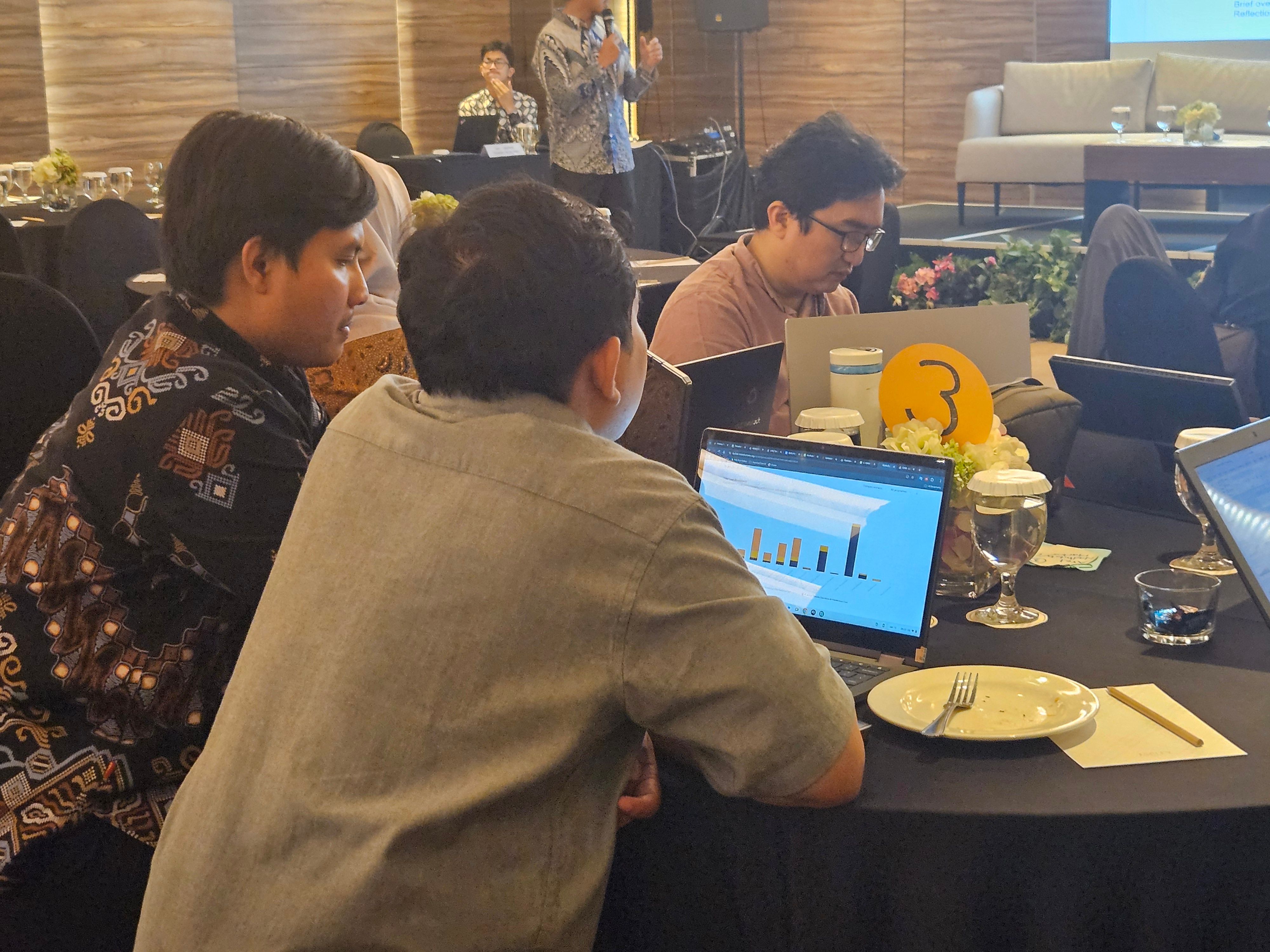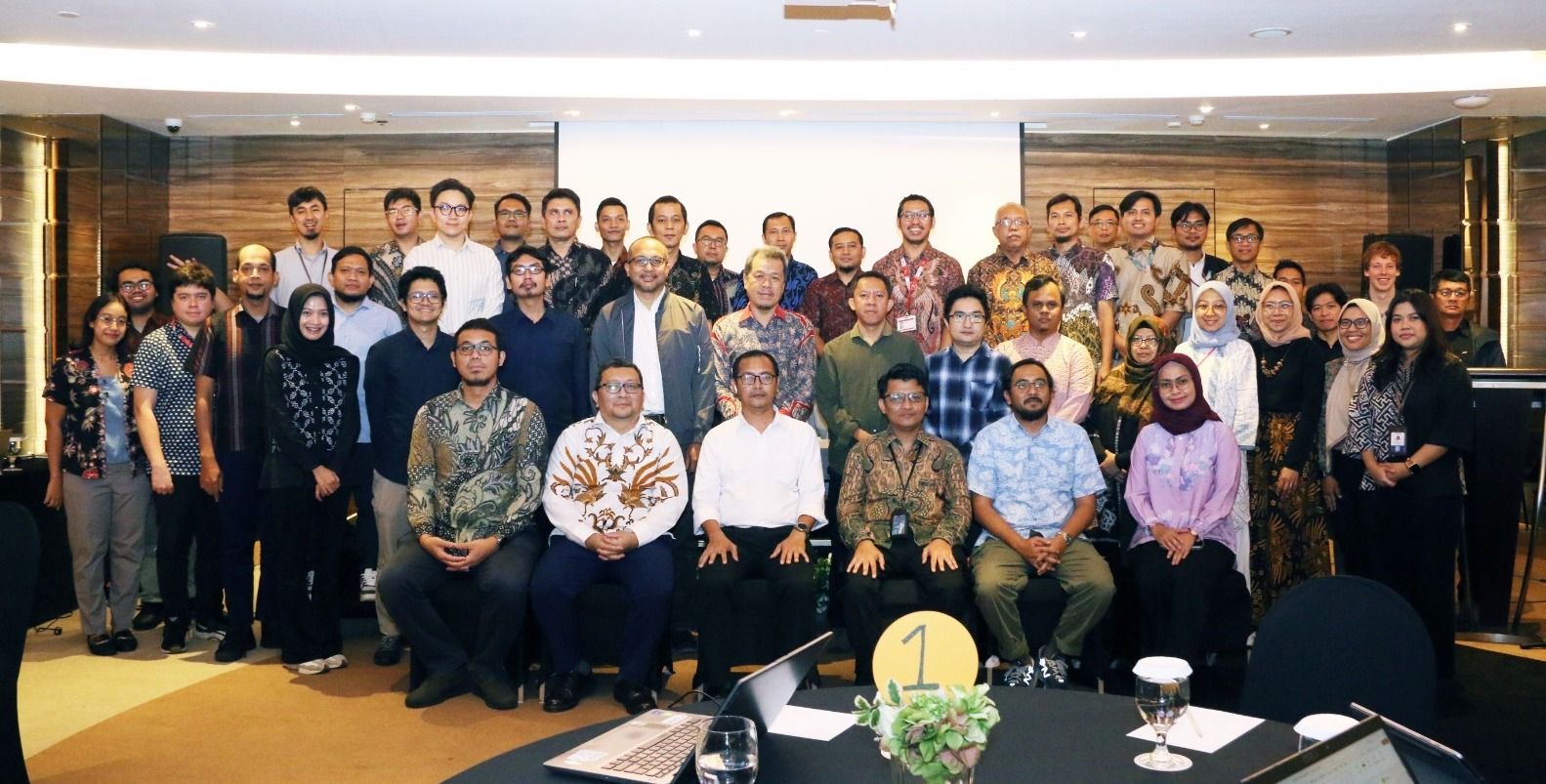Case study
June 25, 2025
Building energy system modelling capacity in Indonesian universities

Summary
TransitionZero and CASE Indonesia — part of GIZ Indonesia’s Energy Programme, and co-run by Indonesia's Ministry of National Development Planning (BAPPENAS) and the Institute for Essential Services Reform (IESR), introducing energy transition modelling to Indonesian academics.
Using Scenario Builder, TransitionZero's no-code energy system modelling platform, participants gained hands-on experience modelling energy transition scenarios and translating outputs into whitepaper policy recommendations.
This capacity-building workshop will help Indonesian universities engage more closely with local government on critical energy planning questions.
RESULTS
31
Participants from 22 universities
RESULTS
412
Scenarios run during workshop
RESULTS
5
Energy policy whitepapers drafted
Problem
Despite the central role of national and subnational governments in Indonesia's energy transition, many local institutions lack access to the modelling tools and training needed to participate meaningfully in the energy policy planning process.
A survey by CASE of over 80 universities revealed fragmented capacity, inconsistent engagement with government planning processes, and a disconnect between academic outputs and policy needs.
Product
To address this gap, TransitionZero and CASE Indonesia — part of GIZ Indonesia’s Energy Programme, and co-run by Indonesia's Ministry of National Development Planning (BAPPENAS) and the Institute for Essential Services Reform (IESR), launched a hands-on energy planning bootcamp for universities across Indonesia. Hosted in Jakarta, the program centred around Scenario Builder — TransitionZero’s no-code energy system modelling tool.
Participants explored a reference scenario prepared by GIZ and TransitionZero, then broke into groups to create 15 alternative transition pathways divided into five specific topics. Each group conducted scenario sensitivity and comparison analyses, interpreted system-wide trade-offs, evaluated the existing policies and extracted policy-relevant recommendations for provincial and national governments.
The training emphasised:
- Interpreting demand and emission projections
- Performing scenario-based capacity expansion planning
- Evaluating modelling-based energy planning policies
- Developing practical, evidence-based white papers
Scenario Builder helps us in multi-scenario analysis to obtain the most optimal results by considering all the constraints & limitations of the system.

Dr. Ir. Rizki Firmansyah Setya Budi
Centre for Energy Studies, Universitas Gadjah Mada, & the National Research and Innovation Agency of Indonesia

Participants analyse a custom energy transition scenario created with Scenario Builder

Workshop attendees and expert facilitators in Jakarta
Looking ahead
The output of this bootcamp, draft white papers, should not be seen as mere project deliverables, but as policy inputs that can be shared with local or national governments, potentially supporting policy dialogues that universities can actively engage in.

Deni Gumilang
Project Lead, CASE Indonesia (GIZ)
Scenario Builder remains freely available to workshop participants, helping Indonesia’s universities consolidate a lasting institutional modelling capacity. Workshop attendees will continue to be updated on the latest Scenario Builder updates, including the launch of no-code dispatch modelling capabilities.
GIZ and TransitionZero, as part of an ongoing partnership, will continue to collaborate on workshops and materials that bolster Indonesia's energy system modelling capacity.

